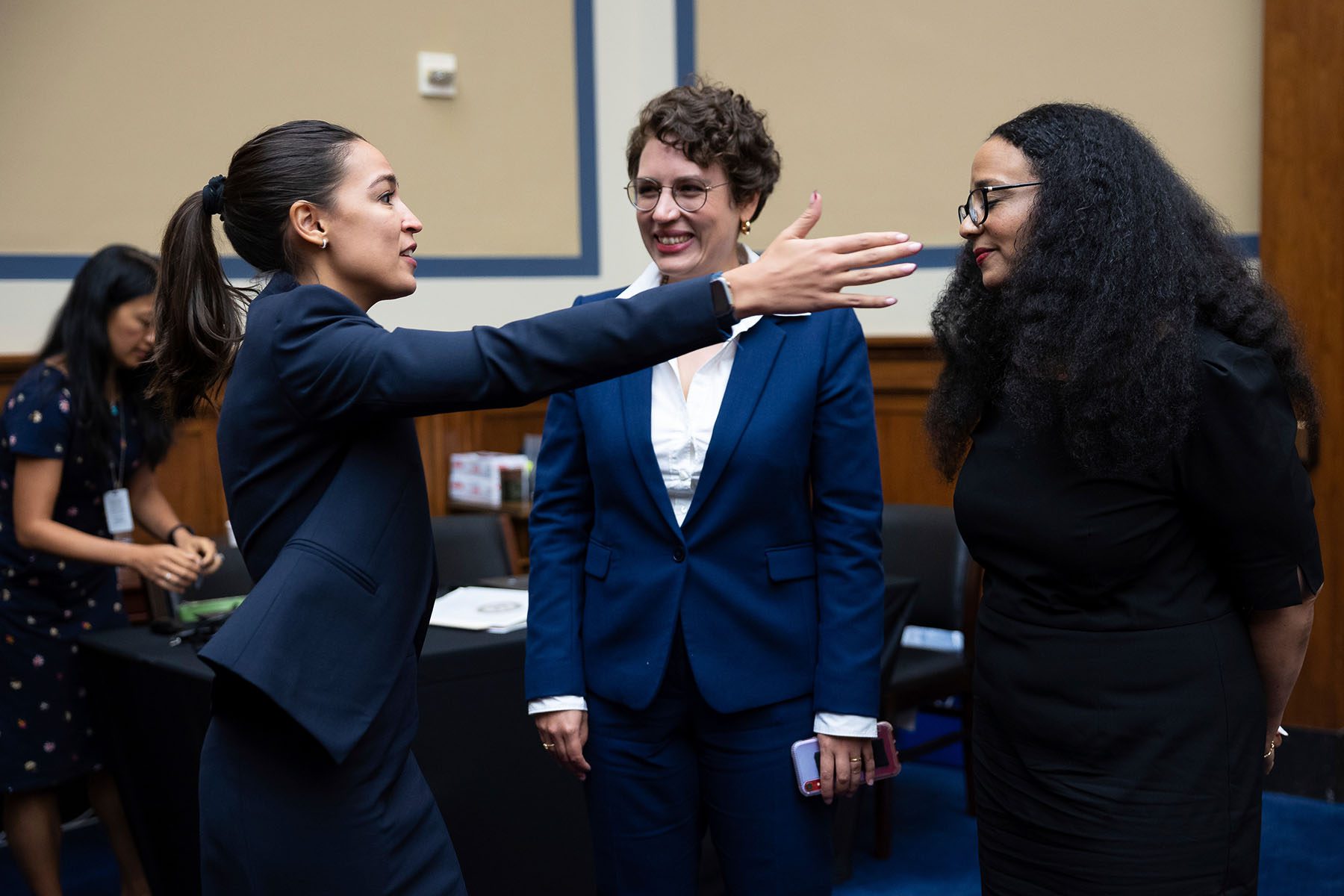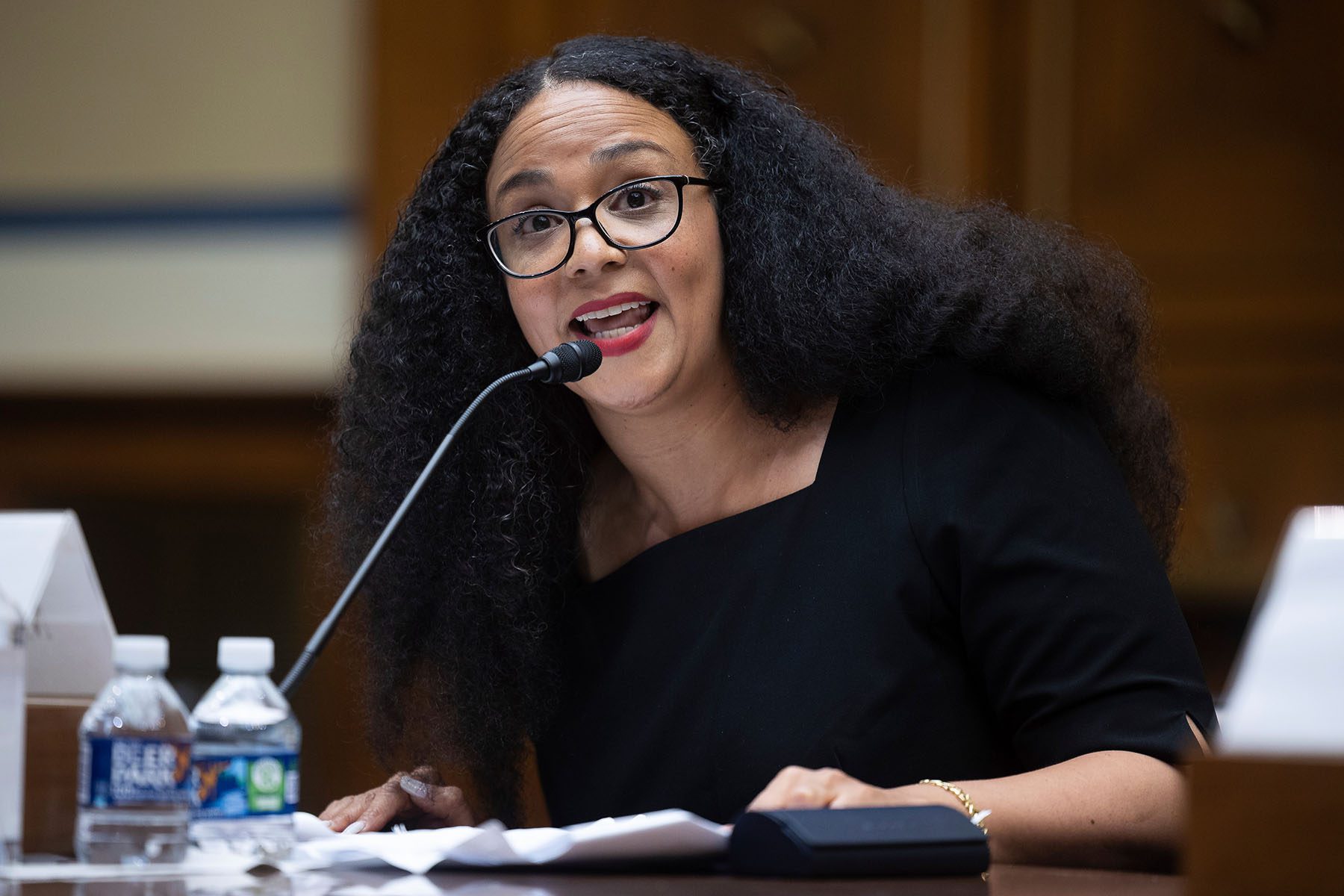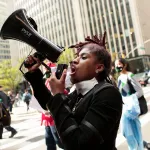During a House committee hearing on the climate crisis and the fossil fuel industry on September 15, Raya Salter gave expert testimony on the disinformation tactics the oil and gas industry has used to obscure its role in causing climate change and highlighting the industry’s harm on frontline communities.
Salter is a lawyer and founder of the Energy Justice Law and Policy Center, a public interest firm, who also serves on the New York State Climate Action Council and has spent her career working on energy policy and law.
But her testimony became overshadowed by an exchange that occurred later in the hearing with Louisiana Rep. Clay Higgins. During his five minutes of questioning he began to talk over Salter, raising his voice and repeatedly calling her young lady — Salter is 49, Higgins is 61 — and at one point referring to her as “boo.”
The exchange prompted New York Rep. Alexandria Ocasio-Cortez to apologize on behalf of the committee. “For the gentleman of Louisiana and the comfort he felt in yelling at you like that, there’s more than one way to get a point across.” She added: “Frankly, men who treat women like that in public, I fear how they treat them in private.” The hearing made headlines, but not for Salter’s testimony—that became buried under the controversy.

The sparring was emblematic of broader misogynistic undertones in attacks on women in the environmental movement, experts say. These attacks go as far back as the 1960s, when Rachel Carson, who exposed the dangers of the then-widely used pesticide DDT in her book “Silent Spring,” was framed by her critics as “hysterically overemphatic” and depicted as a witch in a chemical industry magazine.
“Climate leadership is pretty rich in leadership from girls. Not just women, but girls, women, nonbinary people, which makes it ripe for bad-faith actors,” said Kristina Wilfore, cofounder of #ShePersisted, an organization that researches the impacts of disinformation and misinformation on women politicians and activists. “It’s a fruitful tactic to discredit these women and their ideas. So when women lead climate discourse, we find in some of the research we’re doing it is often framed as irrational or an over-emotionalization of the issue.”
But what is different between then and now is the way in which digital media carries the attacks further through the web of far-right media personalities and social media platforms, said Wilfore.
In the case of Salter, a press release from Higgins’ office went on to describe her as “unhinged with Green New Deal madness.” He also referred to her as a radical “talking anti-American trash.” Higgins, a Republican, later appeared on the Tucker Carlson show, where Carlson commended him for “doing such a good job” at shutting her down.
Since the incident, Salter has faced a wave of insulting messages from Higgins’ supporters or people who watched the Carlson segment.
“It’s just very gender-based misogyny,” she said, listing what she had received: people calling her a moron or incompetent and commenting on her appearance or using other disparaging terms directed toward women.
Carlson and his allies have spoken similarly about Greta Thunberg, the youth climate activist from Sweden. Carlson has referred to her as an “emotionally damaged child,” and a guest commentator on a different Fox News show called Thunberg “mentally ill.” It’s a way to undermine the leadership that she brought to the climate crisis, said Wilfore. “It’s meant to distract from the actual agenda of this issue.”
Wilfore also found it troubling that Higgins chose to call Salter un-American. “One of the hallmarks of these gender disinformation campaigns aimed at women and especially ‘the squad’ is to then tie in any criticism of them, or position them as being inherently anti what America stands for,” she said. “That taps into this kind of nationalism that so-called strong men capitalize on when they attack women’s rights and the women who are representing policies that they don’t want.”
“The squad” is an informal alliance of six progressive lawmakers in the House: Ocasio-Cortez, Ayanna Pressley, Ilhan Omar, Rashida Tlaib, Cori Bush and Jamaal Bowman. Five are women of color. So is Salter.
The thrust of Higgins’ questioning focused on asking Salter how she would get rid of existing petrochemical products — items that include a range of commonly used materials like plastics. According to a study by the International Energy Agency, petrochemicals are set to account for more than a third of the growth in oil demand by 2030. Environmental advocates are concerned that as oil and gas production declines, the industry’s pivot to a growing use of petrochemicals will further other environmental harms.
Asked to provide an unrealistic answer to a hypothetical question, Salter said she felt like she had a choice to make. “Well, is he going to let me give a nuanced answer about petrochemical use and demand greener alternatives? No, he’s not.”
So instead she focused on the communities that live in Louisiana that are harmed by the facilities that make these products. More than 150 petrochemical plants are located in a part of the state known as Cancer Alley, an area that has been linked to a rise in cancer in nearby communities which are predominantly low-income people of color.
After Higgins went on to applaud the use of petrochemicals, “I just felt like I had to put it back on him as someone who actually represents the people who are being generationally poisoned,” she said. So she asked him to search his heart and think about what he’s doing to “the Black and poor people in Louisiana.”
Overall she said she is unfazed by what happened and will continue to focus on the issues: the impacts of the climate crisis and of the oil and gas industry on frontline communities.
“I mean as women, I feel like we’re very used to these misogynistic microaggressions,” she said. “I don’t want people to be deterred or upset, like I’m OK with it. It’s just, it’s a playbook to come after our competence.
“They want to undermine your confidence.” she said. “I’ve got all the degrees and everything hanging on a wall and that’s still the playbook. … [But] you have a right to stand your ground and in your competence: lean into your superpower.”







